
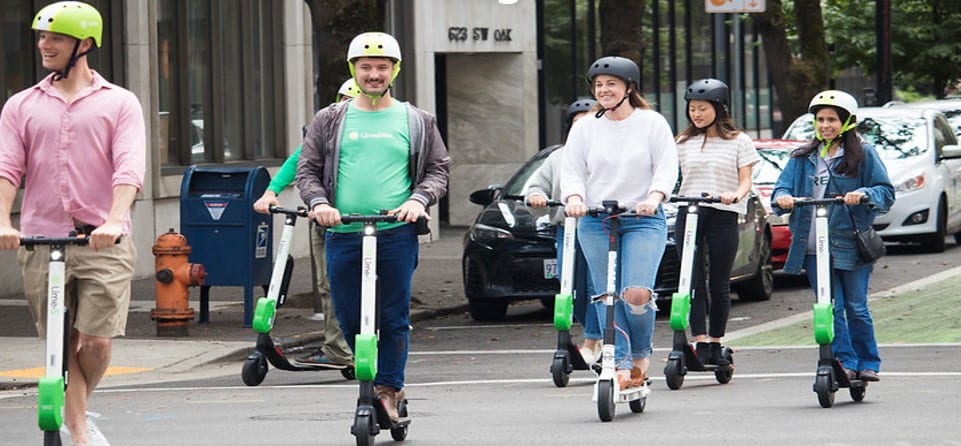
Editor’s note: Updated on Aug 19 to reflect City Council committee vote
We have made a lot of progress (and a lot has changed) since we announced plans to move forward with the steps necessary to bring scooters to Seattle.
After ongoing conversations with the community, we have proposed a plan to make sure our scooter share program is safe, equitable, and accessible. In May, the Seattle Hearings Examiner approved our environmental review plan . On Wednesday, August 19, SDOT presented the plan for the shared scooter program to Seattle City Council Transportation and Utilities Committee, which voted to move the legislation on to the full Council on September 8. With City Council approval, SDOT would potentially be able to launch the scooter share pilot program early this fall.
Read more details here:
- Seattle City Council Presentation
- Draft Legislation: CB 119867 and CB 119868
- Draft Pilot Permit Requirements
- SDOT’s Scooter Share webpage
With the return of Bike Share this summer, we continue exploring ways to help people move around safely and sustainably, especially during COVID-19 and into recovery. Our current transportation challenges are significant, but as we have seen around the globe, shared sustainable options like bikes and scooters provide another resource to ease crowding on transit, encourage physically distant travel, and promote driving less.
The transportation landscape has changed radically since the idea of a scooter share was introduced, and we’ve shaped our program to address those shifts. As we move into Phase 3 of our scooter share pilot program (see graphic below), we are confident that scooters can fit into our COVID-19 recovery efforts and help remediate travel challenges created by the closure of the West Seattle High-Rise Bridge.
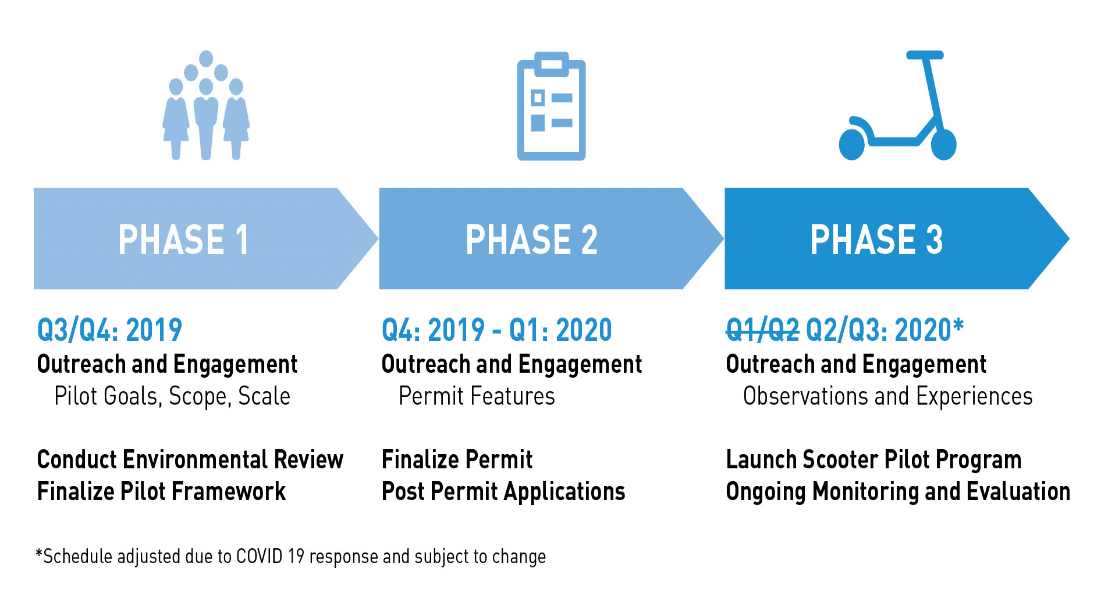
Environmental review was completed in May with full approval to move forward, and in July we invited potential scooter share companies to submit applications for a permit to operate in Seattle.
We received interest from nine scooter share companies who want to partner with us and bring scooters to Seattle as early as this fall. If City Council approves us to move forward, we would start small to ensure this goes smoothly by permitting three of these companies to operate up to 500 scooters each, with the potential to grow up to 2,000 scooters per company in the future if things go well.
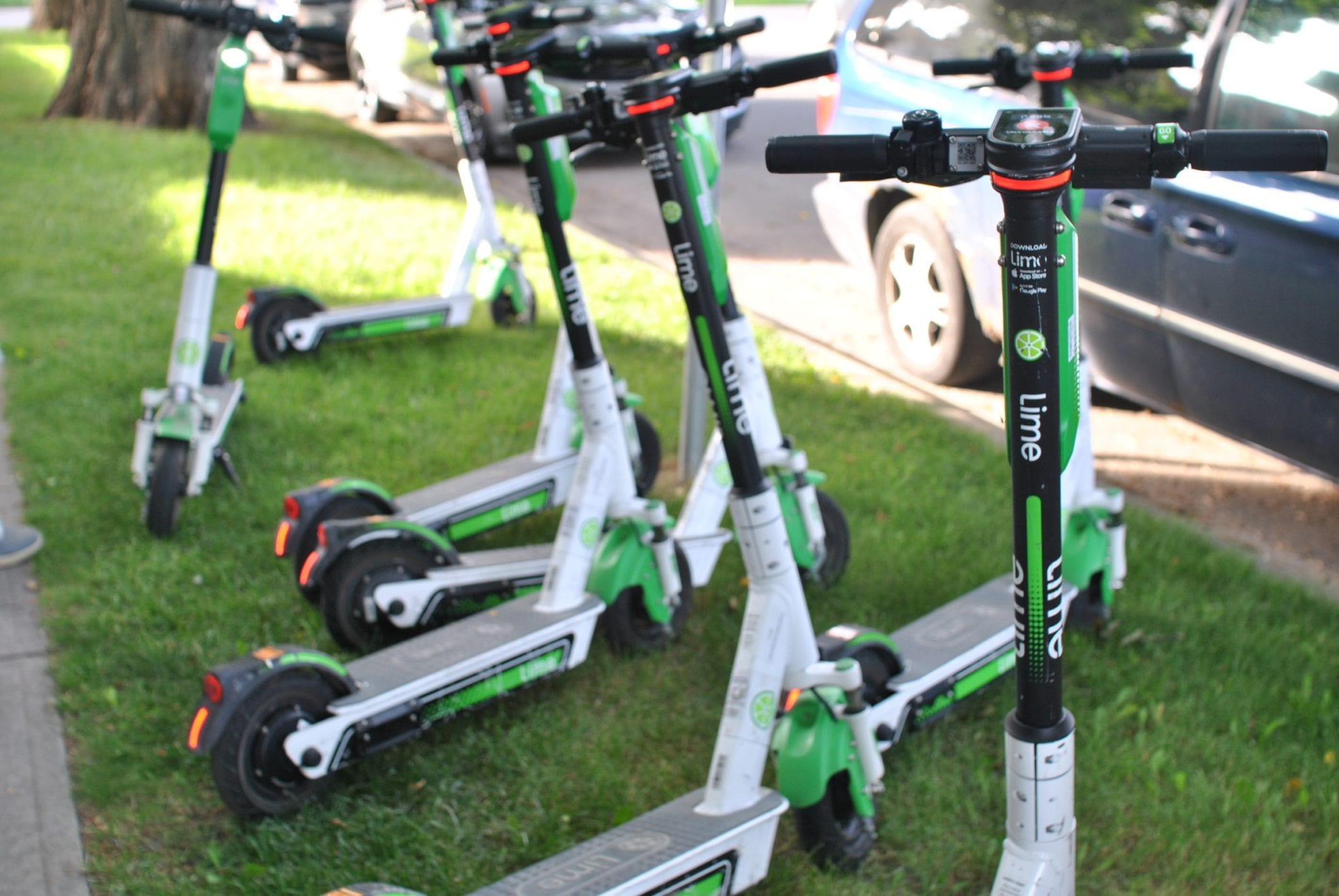
Based on what we heard during our community engagement, we have created a detailed plan for equity, safety, and accessibility.
We designed the comprehensive scooter share pilot with input from people representing disability rights, transportation equity, pedestrian and bike groups, and public health experts.
We’re making sure our scooter program is an equitable, affordable, and accessible option for more people.
- Scooter companies will be required to provide reduced-rate plans for low-income communities and provide access to those who lack a cell phone, bank account or credit card.
- As with bike share, scooter share companies will be required to make at least 10% of their fleet available in neighborhoods with a higher proportion of communities of color, immigrants, refugees, people with low incomes, and limited English-proficient individuals.
- We also will require scooter share companies to pay special attention to West Seattle, South Park, Delridge and Georgetown so that scooters can become part of the solution to the West Seattle High-Rise Bridge closure.
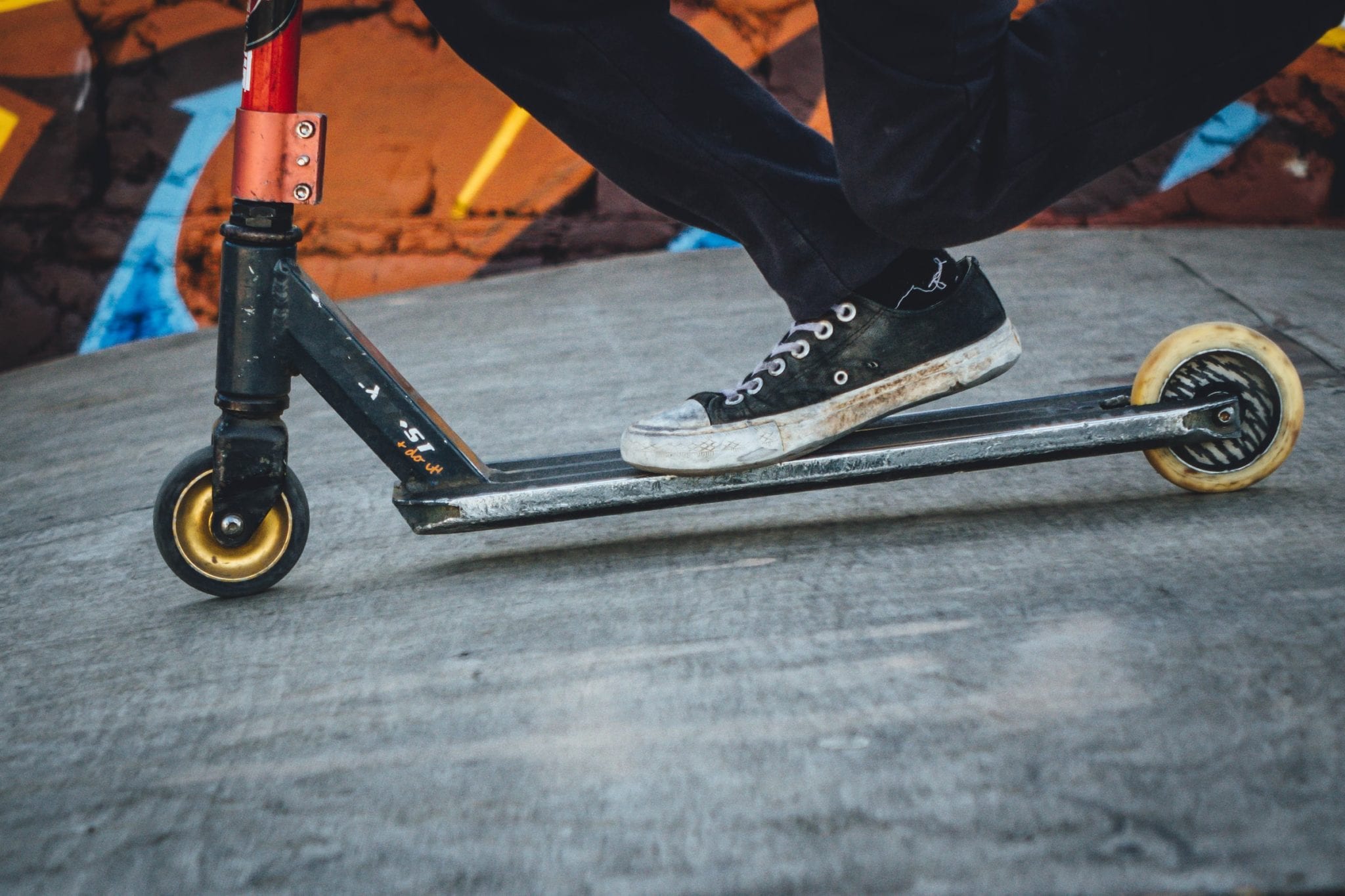
“To increase transit equity and provide more options than those already available, Seattle must join other cities in the world and bring in e-scooters.”
Phyllis Porter, Founder, Seattle Chapter, Black Girls Do Bike (qtd. in South Seattle Emerald)
For the scooter share program to be successful and make it easier for people to travel safely, we have a plan to ensure scooters also benefit people with disabilities.
Creating new ways for people with disabilities to get around
- Our pilot will include scooters with seats that can work as a convenient option for people with mobility impairments.
- Last summer, we partnered with the Outdoors for All Foundation to offer the nation’s first free recreational adaptive cycling options for people with disabilities.
- The funds scooter companies pay for permits will allow us to bring back this amazing program and continue to support this great work of local non-profit Outdoors for All Foundation.
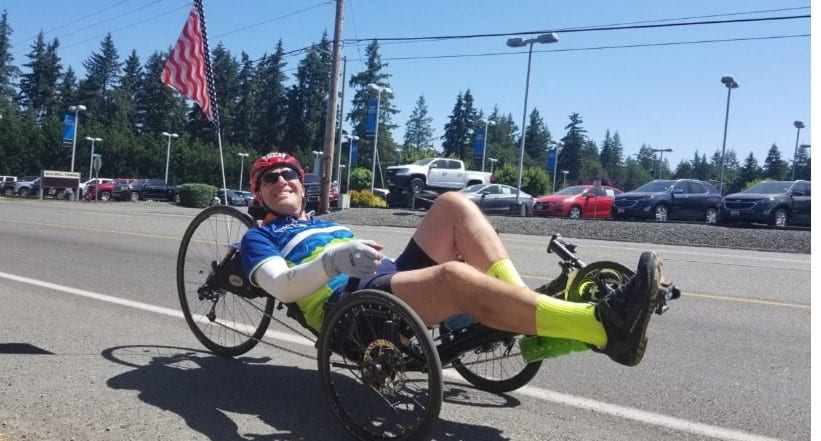
“Not only will Seattle’s scooter share program help us bring our adaptive cycles to people with disabilities, the seated scooters that are part of the shared program can be a great tool to help people with mobility impairments move about the city.”
– Connor Inslee, Associate Executive Director, Outdoors for All Foundation
Ensuring safety and right-of-way access for all
We’ll continue to work, through education and enforcement, to make sure bikes and scooters are parked properly — thereby creating a safer environment for people with disabilities. We’ve worked to consistently to improve bike share parking; those efforts have included developing a great educational video with Rooted in Rights, building over 1,500 new bike (and scooter!) parking spaces across this city, and holding the bike share companies accountable. Those actions led to a significant improvement in how bike share bikes were parked, and we are excited to continue those improvements with the scooter share program.
Safety is our top priority
We built the scooter share pilot around pedestrian and rider safety. We’re exploring a collaborative approach to studying the relative risks of scooter share compared to other modes of travel, and we also will assess the effects of our enhanced education and enforcement plans. Here’s how we’re prioritizing safety:
Seattle continues to make citywide investments to make streets safer for everyone, including people riding scooters
- We are making good progress on our work to reduce speed limits to 25 mph on major streets across the city. This makes our streets safer for everyone, including people on scooters, and has been proven to prevent crashes and save lives.
- We have made significant investments in bike facilities over the past several years and continue to build more protected bike lanes and neighborhood greenways, including our new Stay Healthy Streets that will be shared with scooters.
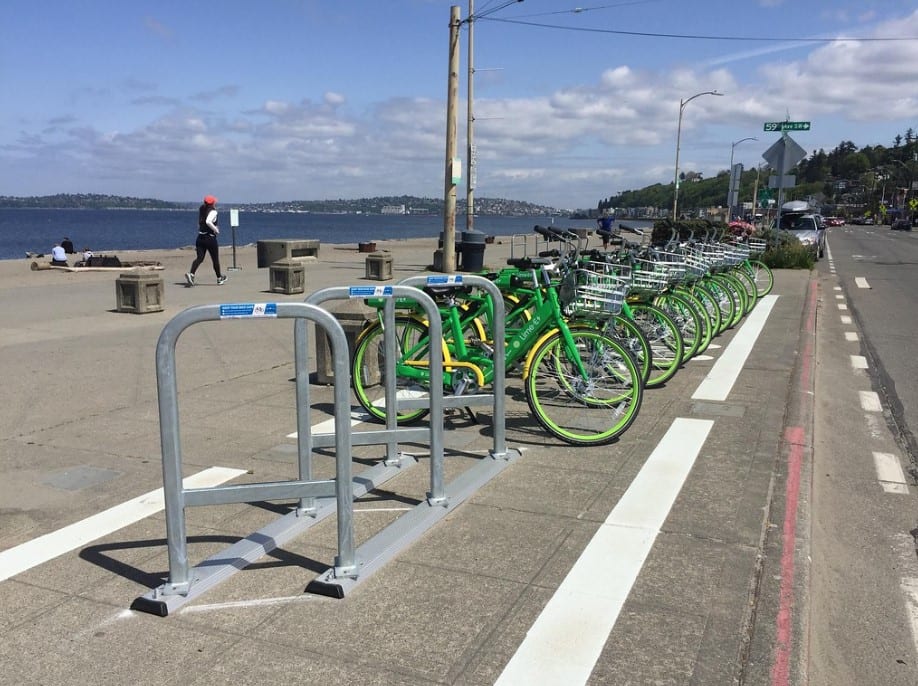
Scooter companies will be required to build safety measures into the devices.
- Scooters will have built in GPS that limits the scooters’ ability to go into unsafe places.
- Scooter speeds will be capped at 15 mph after people’s first ride.
- While just a few years ago scooters in many cities only had a single brake, scooters in Seattle will be required to have both front and rear brakes.
Nationwide studies have shown that most injuries are to first time riders. Increasing education is central to lowering injuries.
- Scooter companies will be required to include safety instructions before first use.
- The City will also work on rider safety outreach and education.
- Speed caps for first-time riders will be lowered to 8mph to decrease the risk of injury during the initial learning curve
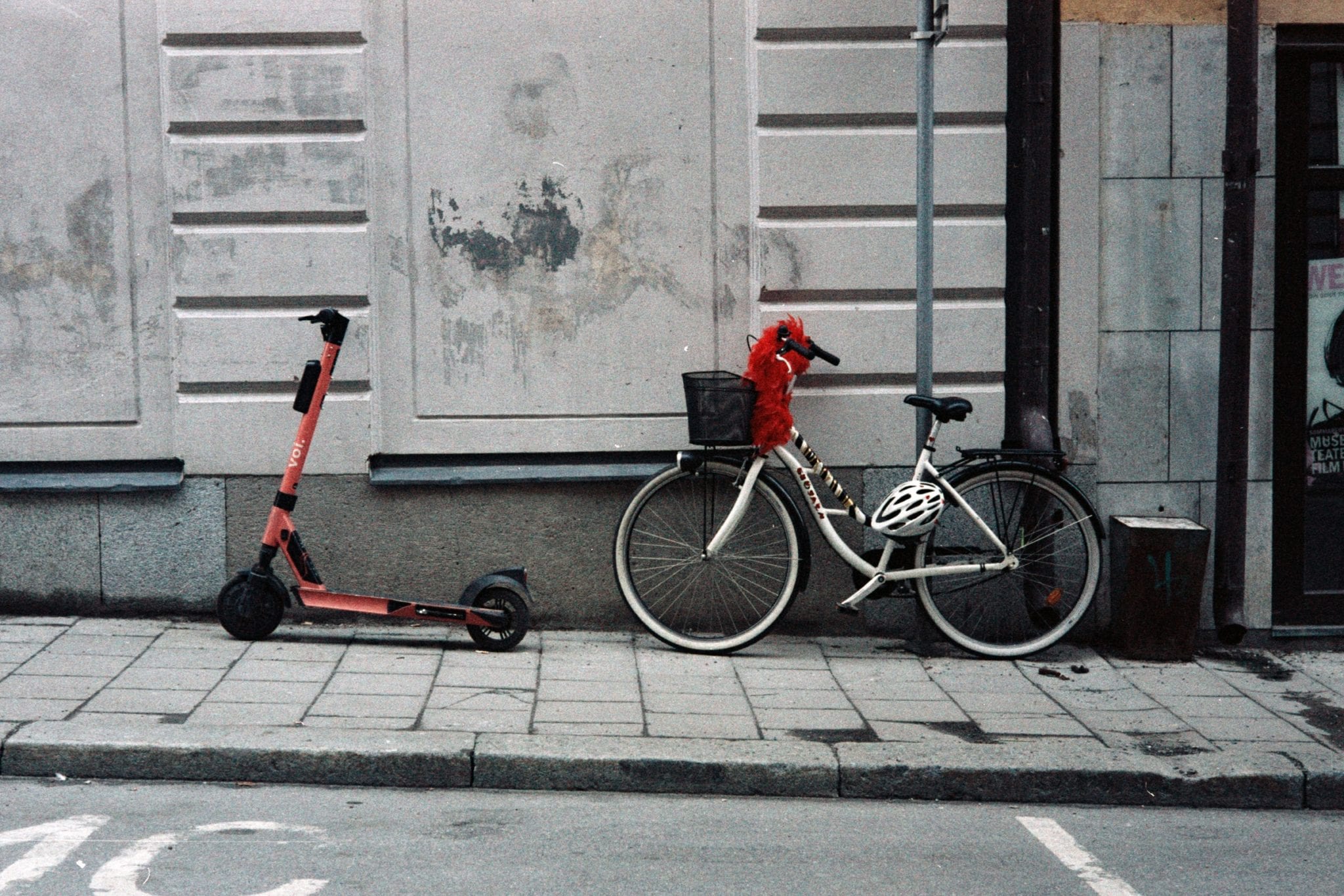
Pedestrian safety is equally as important as rider safety.
- Scooters will not be allowed to operate on sidewalks unless the sidewalk is part of a bike path, like those we see on many of our bridges.
- Parking requirements will mirror that of bike share—scooters must park upright in areas that don’t block access for pedestrians or people with disabilities and abide by no-park geo-fenced zones.
- On-device and in-app education will assure riders are aware of safe parking.
- Riders will need to take a photo of their scooter at the end of the trip and could be fined for improperly parked scooters.
- The general public can report poorly parked bikes or scooters through the Find-It Fix-It app and 684-ROAD.
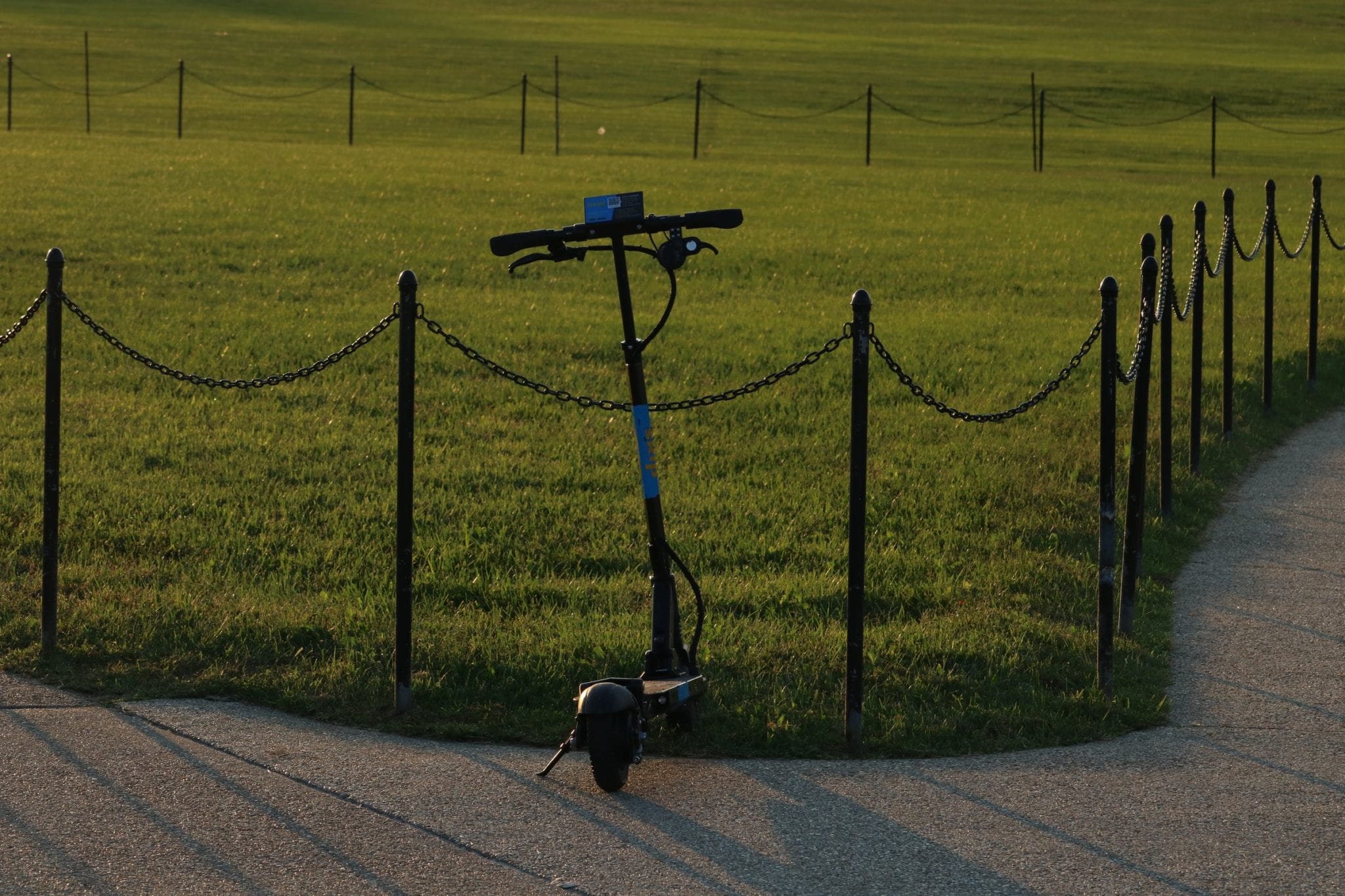
In light of our current public health crisis, scooter companies are required to take extra precautions to reduce the risk of spreading COVID-19.
- Scooter share companies are required to sanitize a scooter every time a device is serviced or rebalanced.
- Signage and in-app messaging will remind riders to continue practicing sanitary habits like riding with gloves, wiping down devices before riding, washing hands, and avoiding face touching.
Over the past few years, we’ve seen more and more people using personal scooters to get around, so we know there is interest in the community. And even during the pandemic, scooter share remains a viable option that many are using in cities like Portland and Los Angeles.
We believe scooter share could add to Seattle’s already robust transportation system and give people more travel options. Seattle launched the nation’s first free-floating bike share program back in 2017 and last year saw continued ridership growth. Done right, we’re excited to offer this new mode of transportation.
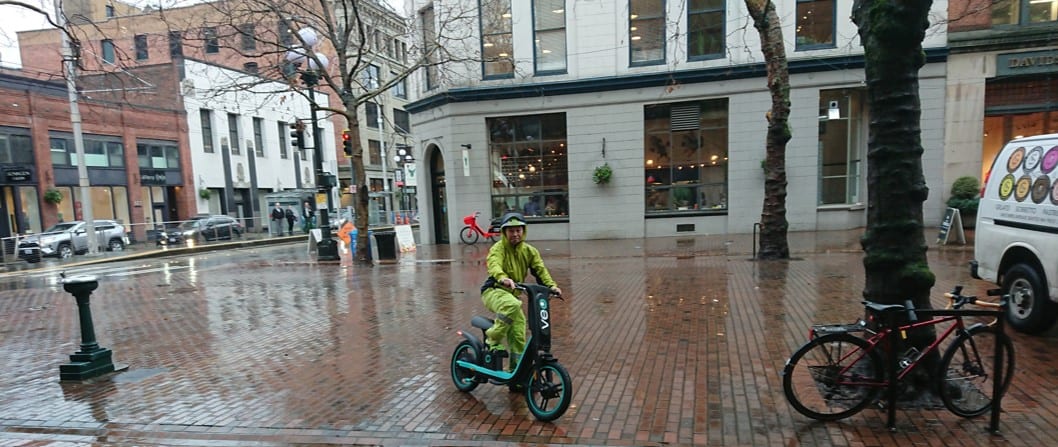
The COVID-19 public health crisis holds many uncertainties for the near future, but as more people return to work and other activities, transportation and congestion management continue to be essential. Like bike share, we think scooter share could be an important choice to get people where they need to go.
Stay tuned for scooter updates in the coming weeks and additional opportunities to connect and provide feedback.